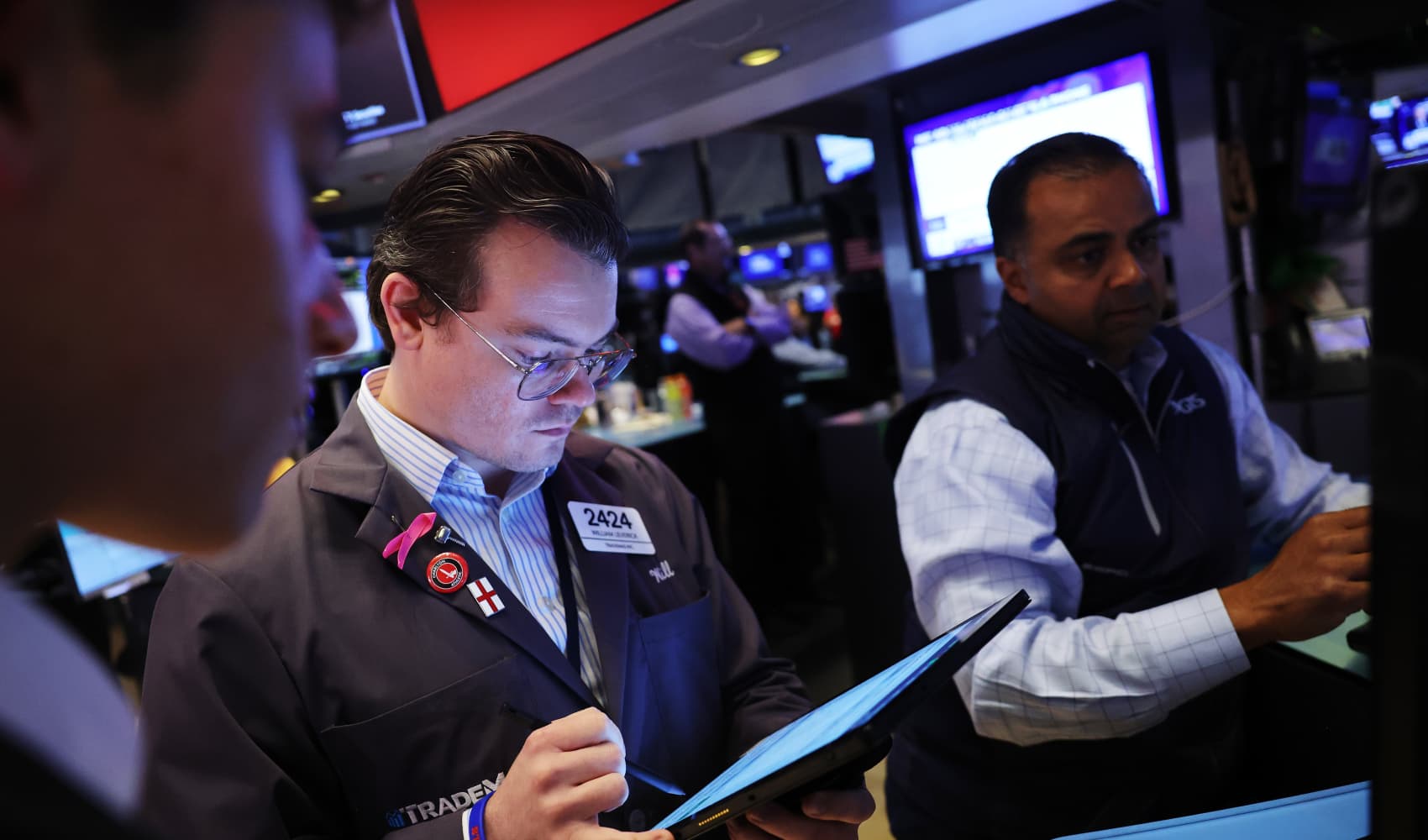
- Marty Chavez, currently on Alphabet's board of directors, was CFO, CIO and global co-head of securities at Goldman Sachs where he helped to oversee one of the market's first major AI implementation strategies, algorithmic trading.
- With a Stanford Ph.D. in computer science, Chavez has witnessed decades of progress in AI and says we're "well into the second half of the chessboard" when it comes to the exponential increase of artificial intelligence.
- Now a private investor, Chavez kept things simple at last week's CNBC Work Summit when offering advice to workers and businesses on how to adapt in the generative AI era.
Marty Chavez, former chief financial officer, chief information officer, and global co-head of securities at Goldman Sachs, has been working with AI for a long time, and well beyond the world of algorithmic trading where the technology found one of its first major market applications (he has a PhD. from Stanford in computer science focused on AI in medicine).
Chavez, who is partner and vice chairman at the private capital firm Sixth Street and is an Alphabet board member, can go deep into the AI rabbit hole amid all the hype about the latest breakthroughs, and the hype is for real, he said at last week's CNBC Work Summit.
"We're well into the second half of the chessboard," Chavez said, referencing the concept of placing grains on a chess square and doubling the amount with each subsequent square. "The computers just keeping getting faster and more and more data is getting labeled," he said. "Everything I see is about twice as impressive as what I saw three months before, so there's never been a better time to be in computer science."
That science is poised to reconceive entire industries and job functions. While debate will continue over whether generative AI replaces more jobs than it creates, Harvard professor Arthur Brooks said at the CNBC Work Summit that AI won't so much eliminate jobs as disassemble them and put them back together again in new iterations. In this wave of automation, white-collar work is among the most "exposed" to the threat of AI, and is in the least going to be re-made in ways that are first now being seen in early office experimentation.
Get Tri-state area news and weather forecasts to your inbox. Sign up for NBC New York newsletters.
PwC is rolling out its customized ChatPwC for 75,000 workers in North America this month. "The hyperbole around AI is more than I have seen with anything in 30 years, but it's well-earned. It will change everything," PwC chief products & technology officer Joe Atkinson recently told CNBC. PwC opened its internal "AI factory" a year ago and within six weeks, the firm had more than 3,000 use cases for internal uses and clients, and "very few don't have merit," he said, adding that many also came from individual contributors rather than leaders.
Money Report
McKinsey has created its own AI platform called Lilli that is being deployed among 45,000 employees and enables consultants to do "in minutes what it would have taken them weeks to do," said CFO Eric Kutcher said at the recent CNBC CFO Council Summit in Washington D.C.
None of this is any surprise to Chavez, who says professional services firms might be saying, 'How am I going to defend business against AI?" but that would be a mistake. They should, he says be asking how they can automate large swaths of tasks and reconceive what it means to deliver those services. And he has similar career advice for workers. Chavez said he sees three career strategies for navigating AI, which he typically shares with young people.
The three AI career options simply explained
The first career option, Chavez said, is to tell the computers what to do. "Be a computer scientist or engineer. It's interesting."
The second option, a "fantastic strategy open to lots and lots of people," Chavez said, is to collaborate with the people who tell computers what to do, and use the computers and tools to make yourself much more productive. "I saw lots of people on Wall Street adopt that strategy," Chavez said. "They helped to automate the trading so they could go on and do higher level things, and those people have fantastic careers."
The third option, and the only one he does not recommend to anyone, "is to stand in way of progress in the name of job security and obfuscate or thwart people looking to automate workflows."
"It's doomed to fail," Chavez said. "I've seen it fail. Do not set yourself up in competition with the computers. I decided in seventh grade to not compete with calculators on multiplying numbers. I had confidence finding what tools can do better will open up new things for me to do."
His advice for companies was similar.
"Boards and leadership of companies need to look at all of their businesses, look at all their different workflows, from one end to the other, and if in your business you have a workflow that has these features: it's routine, it's repeated … it takes as inputs all kinds of disparate data – PDFs and Excels and unstructured web pages and voice – and its output is customized, maybe heavily customized, and somewhat, but maybe not wildly, creative … if you've got a workflow that meets those filters, it's one you really ought to be looking at right now with the AI tools on the market, and consider whether you can give your people a force multiplier."
To join the CNBC Workforce Executive Council, apply at cnbccouncils.com/wec.
Correction: Chavez is partner and vice chairman at the private capital firm Sixth Street. An earlier version of this article misstated his title.






